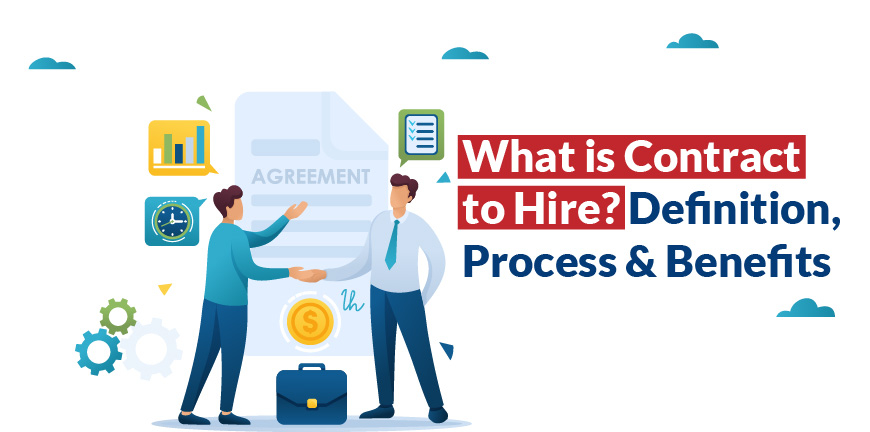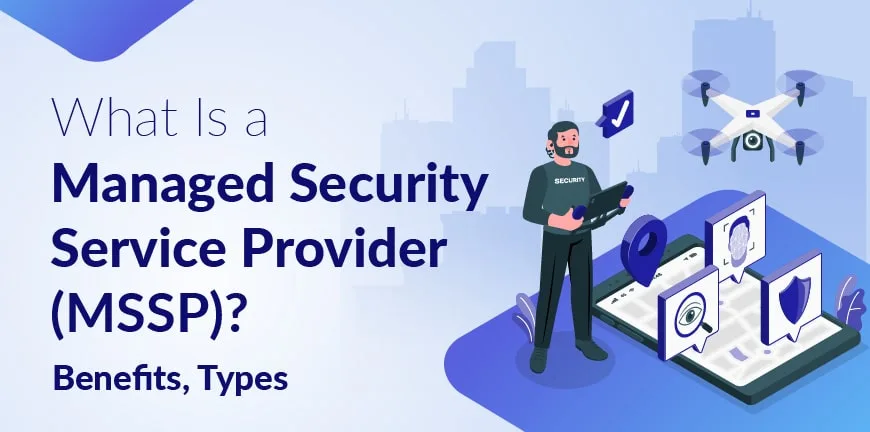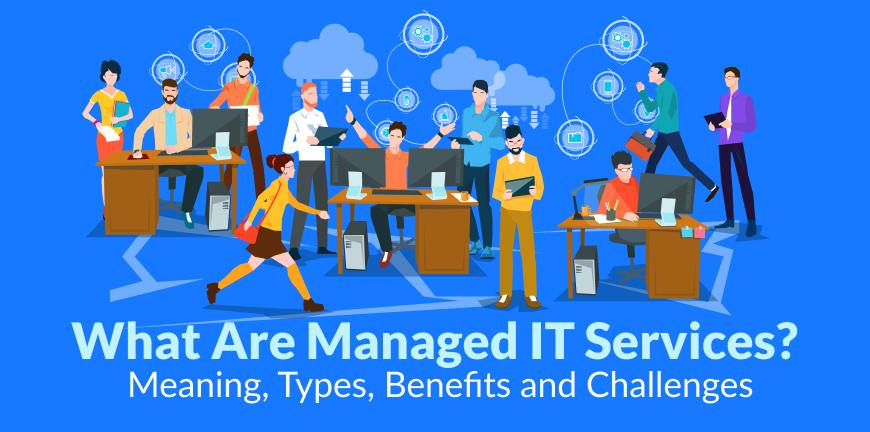
What is Contract Staffing? Definition, Process and Benefits
28/11/2025
The Role of Leadership in Creating an Inclusive GCC Culture
01/12/2025- What Does a Managed Service Provider (MSP) Mean in Recruitment?
- What are MSPs used for in Recruitment and Staffing?
- How Do Managed Service Providers Work?
- What Are the Different Types of Managed Service Providers?
- In-House Recruitment vs. Managed Service Provider (MSP): What’s the Difference?
- What Are the Benefits of Working with a Managed Service Provider?
- What Are the Challenges of Managed Service Providers?
- What Are the Pricing Models for Managed Service Providers?
- How to Find the Right Managed Service Provider for Your Business?
- What are the Future Trends of the MSP Market?
- How Can ALP Consulting Help You Implement an MSP Solution?
- Key Takeaways
- FAQs
In today’s era of a fast-evolving digital landscape, businesses must be agile and efficient and cannot afford any slowing down, as competition is fierce. With technology taking over sectors, organisations must be updated and move forward equipped with the best of technical and business expertise. This is when MSPs or Managed Service Providers step in and act as a guardian angel, empowering organisations to strive for smarter, more secure and scalable operations.
According to reports, the Indian managed services market was valued at INR 43,857.4 crore in 2024and is expected to grow at a CAGR of ~8.7% during 2025–2033.
What Does a Managed Service Provider (MSP) Mean in Recruitment?
A managed service provider is a third-party agency that offers complete IT support and management services for temporary, contract, and other non-permanent workers for a company. An MSP manage various recruitment functions like sourcing candidates, handling relationships with staffing agencies, ensuring organisations comply with regulations, along managing payments.
What are MSPs used for in Recruitment and Staffing?
MSPs are hiring parties whose services help hire people for remote, contract-based, temporary jobs. They help in hiring people, managing the process of hiring, supplier management, the ability to scale up and scale down hiring on demand, etc.
Key Uses:
- Handling of the contingent workforce is one of the vital uses of MSPs, as they manage the comprehensive hiring cycle from sourcing to onboarding to offboarding.
- They help organisations in sourcing and recruiting top IT professionals by identifying skilled candidates for temporary job roles by posting job advertisements, screening CVs and interviewing candidates.
- MSPs also play an important role in handling various staffing agencies and coordinating with them for maintaining relationships and contracts.
- They help in cost efficiency by negotiating rates with their expertise for various services, facilitating a consolidated billing structure.
- MSPs are updated with the ever-changing compliance rules and regulations, ensuring companies comply with the relevant laws, diminishing the risk of misclassification and legal situations.
- They help in organising and structuring the recruitment processes, allowing internal teams to focus on core activities and offering flexible options to scale operations as per company requirements.
How Do Managed Service Providers Work?
MSPs can be planned, managed, customised and implemented to suit the needs of the organisation. They are available 24/7 and remove the added pressure on your talent acquisition and HR teams.
- One of the most vital roles of MSPS is to monitor and assess the clients’ IT systems and tools closely to identify potential errors or security breaches so that they can intervene and fix them.
- Then, a well-crafted service plan is presented to clients, called a Service Level Agreement, that clearly states the types of services that will be provided, the number of support hours, resolution time, security roles, and payment terms.
- MSPs usually utilise remote monitoring and management tools to monitor, evaluate and identify issues and security threats, installing updates and patches automatically.
- Managed IT service providers have expertise in handling cybersecurity, like managing firewalls, security monitoring systems, data protection and compliance, etc.
- They are also responsible for managing cloud platforms and helping with cloud migration, cloud security back back-ups, etc.
- MSPs deliver structured reports that include system performance, tickets, network health status, recommendations, etc.
What Are the Different Types of Managed Service Providers?
Let us look at the different types of MSPs:
1. Cloud-Based MSPs
These MSPs help businesses migrate smoothly to cloud platforms, and they help manage and enhance cloud infrastructures.
According to Netweb India (in its FY2024–25 report), the cloud managed services market in India is expected to grow at a 23.1% CAGR from FY2025 to FY2029.
2. Security MSPs or MSSPs
These concentrate solely on cybersecurity aspects, offering solutions like threat detection, monitoring, incident response, and compliance management.
3. Specialised MSPs
These providers focus on niche sectors or industries, offering solutions designed for specific industries that have unique requirements.
4. Communication MSPs
These service providers handle communication platforms and tools, ensuring their security and optimisation.
5. Data analytics MSPs
These providers focus on data-specific requirements like data management, analytics and reporting.
In-House Recruitment vs. Managed Service Provider (MSP): What’s the Difference?
| Category | In-House Recruitment | Managed Service Provider (MSP) |
| Definition | Recruitment is handled internally by the company’s HR or talent acquisition team. | A third-party provider manages all or most recruitment processes on behalf of the company. |
| Cost Structure | Fixed costs (salaries, tools, training) can become expensive during high hiring periods. | Flexible, scalable pricing—often pay-per-hire or monthly service fees; reduces infrastructure costs. |
| Scalability | Limited by team size and internal capacity, scaling up requires hiring more recruiters. | Highly scalable; MSPs can quickly ramp up or down based on hiring volume. |
| Speed of Hiring | It may be slower during peak hiring due to limited internal resources. | Typically faster due to larger talent pools, automation, and dedicated recruitment teams. |
| Technology & Tools | May rely on basic or legacy HR tools; limited automation. | Uses advanced recruitment technology, AI screening, analytics, and applicant tracking systems. |
| Talent Pool Access | Mostly local or industry-specific networks; limited external sourcing. | Wide access to global/national talent pools, vendor networks, and specialised recruiters. |
| Expertise | Strong understanding of company culture and internal processes. | Deep recruitment expertise across sectors; skilled in large-scale hiring and compliance. |
| Flexibility | Less flexible; workload spikes may overwhelm the team. | Highly flexible; MSP adjusts quickly to market or business needs. |
| Quality of Hire | Often a good cultural fit, but may lack sourcing breadth. | Data-driven strategies ensure high-quality candidates, but cultural fit depends on communication. |
| Compliance & Reporting | Managed internally; risk of errors if standards or laws change. | MSPs maintain compliance with regulations and provide detailed reporting & analytics. |
| Control | Full control over processes, decisions, and candidate experience. | Shared control; the company provides direction, but MSP handles day-to-day operations. |
| Best For | Small to mid-sized businesses with stable hiring needs and strong HR teams. | Companies with large-scale, fluctuating, or specialised recruitment needs. |
What Are the Benefits of Working with a Managed Service Provider?
Working with MSPs can significantly help organisations to accelerate their operations and enhance productivity. Let us check out some of the advantages:
1. Access to Expert Services
MSPs have deep insights and expert knowledge in niche areas like cybersecurity, cloud, network management, and compliance. They support organisations with expertise that would otherwise be expensive for them.
2. Enhanced Efficiency
Improves the efficiency of the hiring process by allowing hiring managers to focus on strategising for hiring regular employees and devote more time to specifying the roles that need contingent workers.
3. Flexibility and Scalability
MSPs offer flexibility to companies, and with the help of their solutions, businesses can scale their operations up or down depending on the demands. It is useful for organisations focusing on seasonal recruitment or companies facilitating digital transformation projects.
4. Cost optimization
MSPs allow you to optimise costs and prevent the costs of recruitment from going up. This involves all costs, such as hiring resources internally, both in the HR team and to support them, the cost of an HR strategist to help with hiring, and vendor costs.
5. Resilient Data Recovery
MSPs offer solutions like automated data backup and disaster recovery, ensuring that the firm’s business operations are not disrupted. Alleviates data loss in case of system breakdown and supports expedited recovery and operation restoration.
What Are the Challenges of Managed Service Providers?
MSPs offer a slew of advantages, but like any other service provider, they also face challenges. These challenges, if well comprehended by both the provider and client, will enable them to overcome the obstacles. Let us find out what they are:
1. Security Concerns
MSPs usually have access to a huge volume of the company data that is sensitive data. If there is a breach, then it might compromise the operations of multiple customers. The need of the hour is to design a robust security system that safeguards companies from security risks.
2. Dearth of Direct Control
Companies often are dependent on MSPs, giving them maximum control in managing systems. So certain decisions, especially regarding tools or processes, have to be taken after coordinating and discussing with the external party. In case of misalignment in opinions and decisions might negatively impact response times.
3. Collaboration Problems
There could be misunderstandings and miscommunications while delivering remote support, as gaps might be created, adversely affecting problem resolutions and the quality of service. There is a requirement for continuous transparency while collaborating with teams.
4. Integration with Existing Systems
Organisations are used to old and conventional systems and structures that might be difficult for MSPs to handle. Then there is the aspect of migrating to MSP tools and platforms that can create disturbance if not designed and planned correctly.
5. Legal and Compliance Issues
MSPs must be cautious with changing laws and regulations and comply with the industry rules without fail. A slight data mismanagement or failure to adhere to regulations might result in serious legal consequences.
What Are the Pricing Models for Managed Service Providers?
Pricing models offered by MSPs vary depending on the business demands, sizes and complexities. Let us see what the pricing models are:
- Per User Pricing
- Package-Based Pricing
- Flat-Rate Pricing
- Hybrid Pricing
- Pay-As-You-Go Pricing
- Value-Based Pricing
How to Find the Right Managed Service Provider for Your Business?
To find the right MSP service provider and long-term partner, organisations need to follow certain steps:
- The primary step for organisations is to identify their own requirements. Make a list of essential services like 24/7 monitoring, cybersecurity services, cloud management, helpdesk support, etc, that might be important.
- Businesses need to research MSPs, investigating their expertise, industry expertise, tools they utilise and compliance frameworks.
- After researching and identifying their expertise, the next step is to analyse their tools and technology systems. If they are advanced enough to cater to the myriad requirements of organisations.
- Another vital step is to check their records and industry feedback, testimonials and references to get a clear picture.
What are the Future Trends of the MSP Market?
AI and Automation to be integral- MSPs will use AI-enabled tools and platforms to the maximum, especially for predictive maintenance, automated ticketing, etc. Tools like chatbots and virtual assistants will also be popular in handling queries and giving feedback.
Use case- TechGaurd MSP Solutions deploys AI-powered tools to monitor client networks and devices 24/7. This usage resulted in a 40% reduction in unplanned outages and enhanced system reliability.
Hybrid and multi-cloud models- Businesses will distribute workload across cloud platforms, creating demand for MSPs that can manage multiple cloud landscapes. MSPs will assist organisations with cloud migration, cloud computing, and other cloud-centric operations.
Rise of self-healing systems- MSPs are likely to build structures that can automatically correct errors and anomalies, diminishing downtime, enhancing SLAs, and providing more reliable services.
Focus on customer satisfaction- MSPs today are not just focused on managing infrastructure but prioritise customer experience and outcomes. They work towards enabling clients to achieve their business objectives along with offering technical assistance.
How Can ALP Consulting Help You Implement an MSP Solution?
Alp Consulting, one of the most sought-after MSP solutions providers, with its top-notch staffing ability, will support you with end-to-end contingency management processes from sourcing, screening, recruitment, and handling compliance-related issues. Our expert team can manage multiple vendors by coordinating and communicating with them regularly by following various MSP models.
Our team is not only focused on filling vacancies but also on smartly using insights and data analytics that can predict your future hiring requirements. Alp, with its global reach, can help you as an organisation to tap into a diverse bank of global talent.
Key Takeaways
- MSPs streamline and optimise recruitment for contingent workers
- MSPs offer scalability, cost savings, and operational efficiency
- Different types of MSPs meet diverse business requirements
- MSPs come with both benefits and challenges
- The future of MSPs will be driven by AI, automation, and multi-cloud management
FAQs
1. What is MSP in Recruitment?
Managed service provider in recruitment plans your contingent hiring, does contingent workforce planning, and even manages all the suppliers who are involved in the process of hiring. It is different from recruitment process outsourcing as the hiring is for temporary work.
2. What is the Full Form of MSP?
The full form of MSP is managed service provider. It could also mean managed service programme. Managed service programme is a solution provided by a managed service provider to the employer.
3. What is the Role of an MSP?
The role of a managed service provider encompasses all matters related to the hiring of a contingent workforce, planning the workforce, and even managing vendors and worker compliance on behalf of the employer. An MSP strengthens the employer brand and makes it more appealing to the candidates, while also onboarding candidates at much lower costs and in much less time.
4. How do MSPs differ from RPOs and outsourcing?
MSPs are a third party that helps organisations to hire a contingent (temporary) workforce, while RPOs help organisations with the recruitment of individuals for permanent roles.
5. What are the benefits of using MSP for contingent hiring?
Benefits of utilising MSPs include enhanced efficiency, diminished costs, access to a broader pool, etc.
6. How do MSPs charge for their services?
MSPs charge for their services using various price models depending on the type and complexity of services.
7. What industries use MSPs the most?
Sectors like manufacturing, technology, healthcare, finance, etc., essentially use MSPs.
8. What is the difference between a master vendor and a vendor-neutral MSP?
Master vendor provides contingency management solutions through a single and primary vendor, while vendor-neutral MSP is when MSPs work with multiple stffing agencies.
Contact Us For Business Enquiry

Amit Saproo
Amit Saproo is the Head of Operations at ALP Consulting with nearly 17 years of experience in Executive Search, RPO, Leadership, and IT & Engineering recruitment. He leads nationwide recruitment programs across Technology, BFSI, and R&D domains, driving strategic hiring solutions for diverse client needs. Amit excels in building and managing high-performance teams that deliver scalable, end-to-end recruitment and consulting services.



